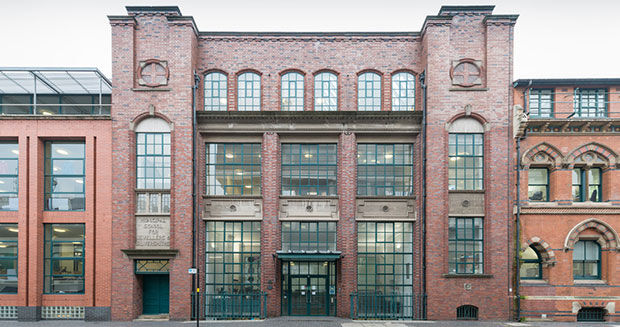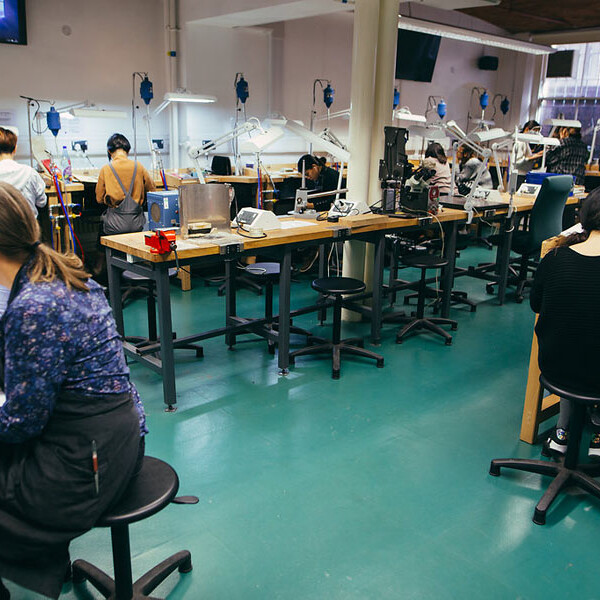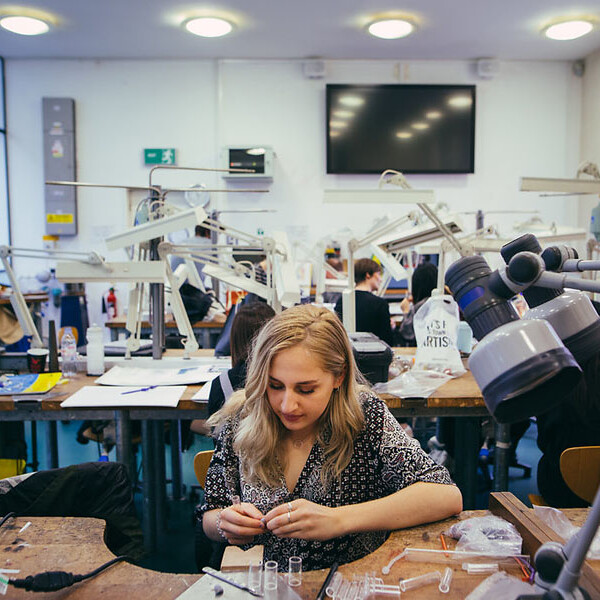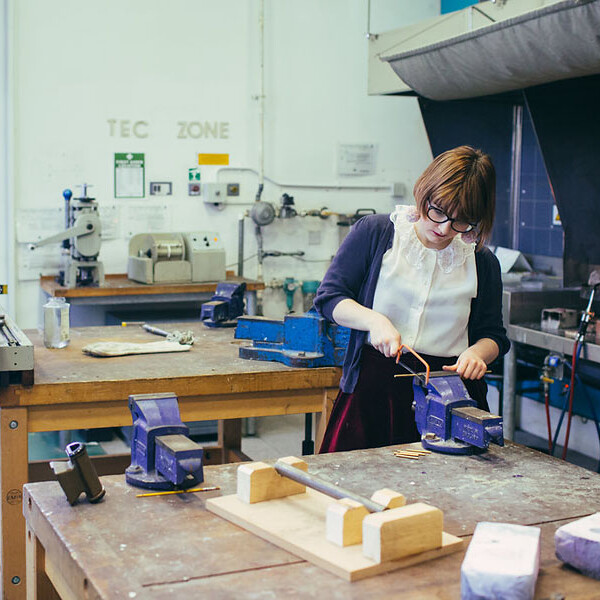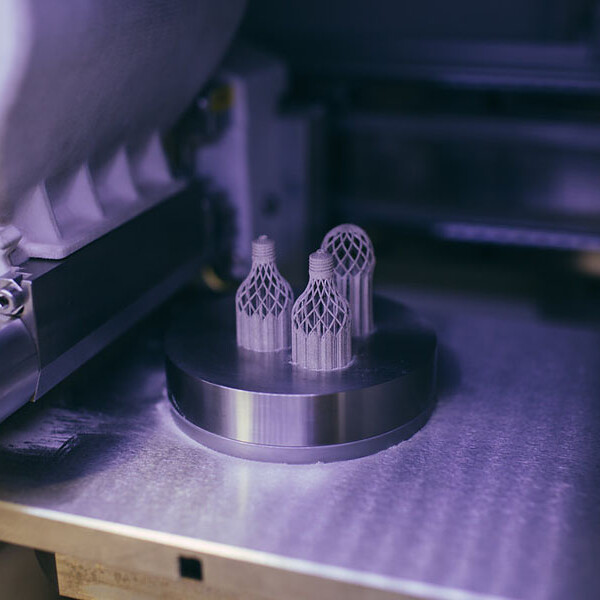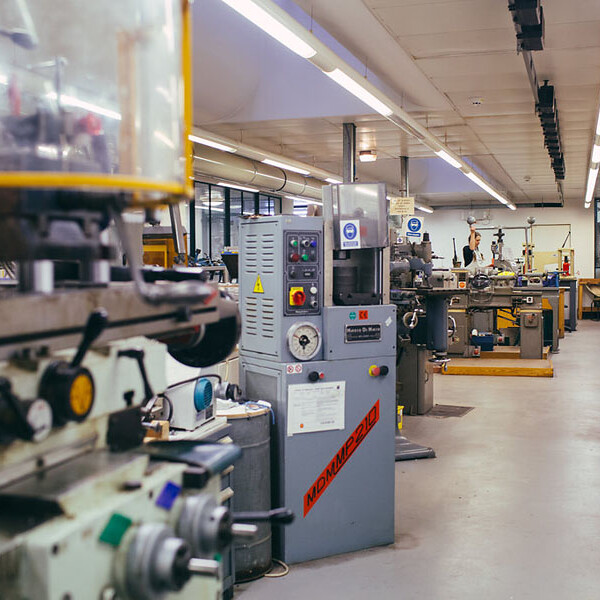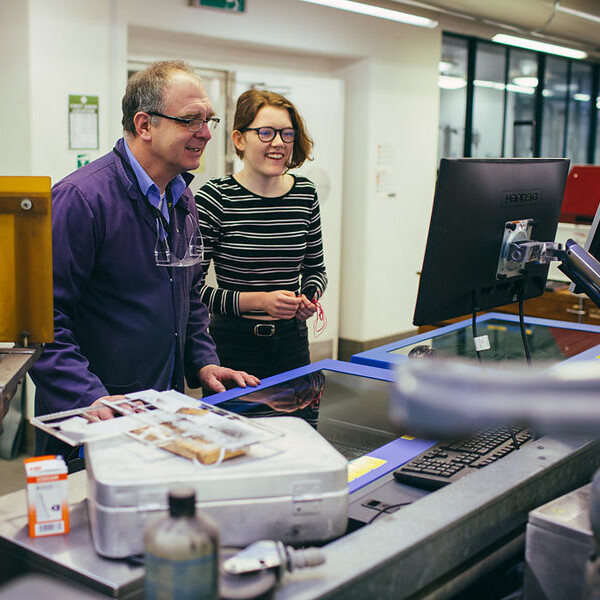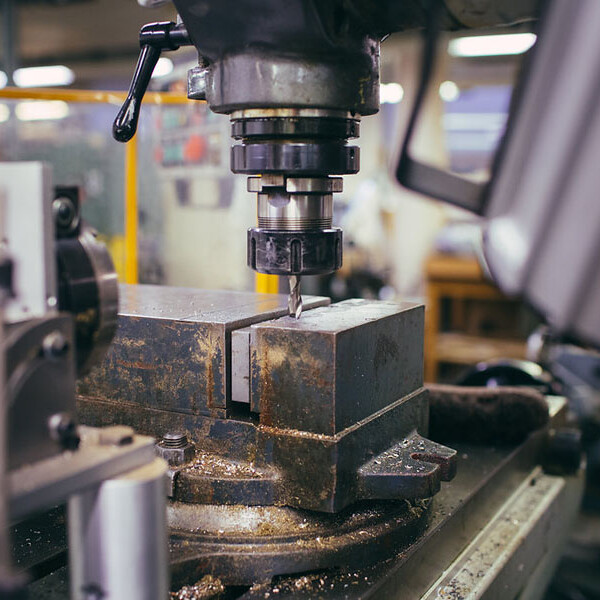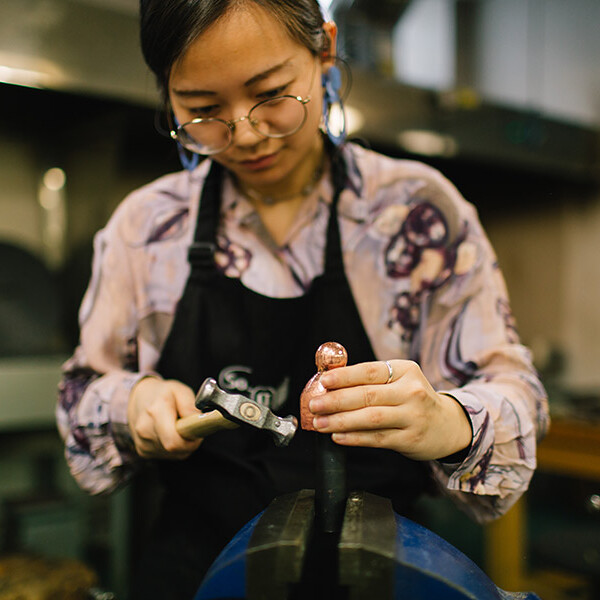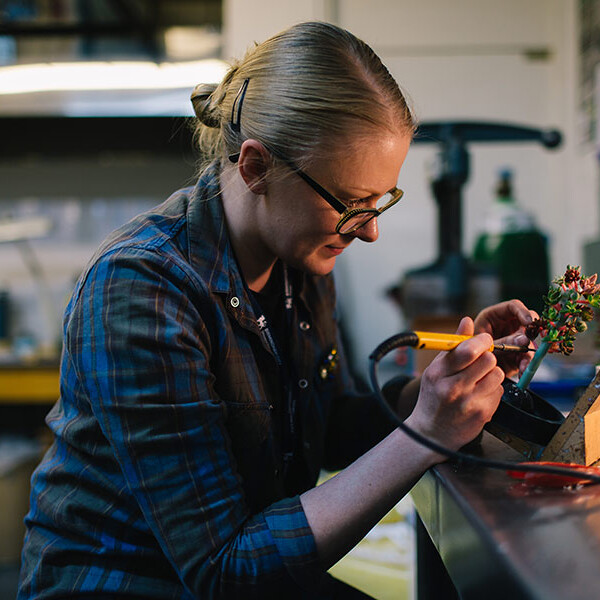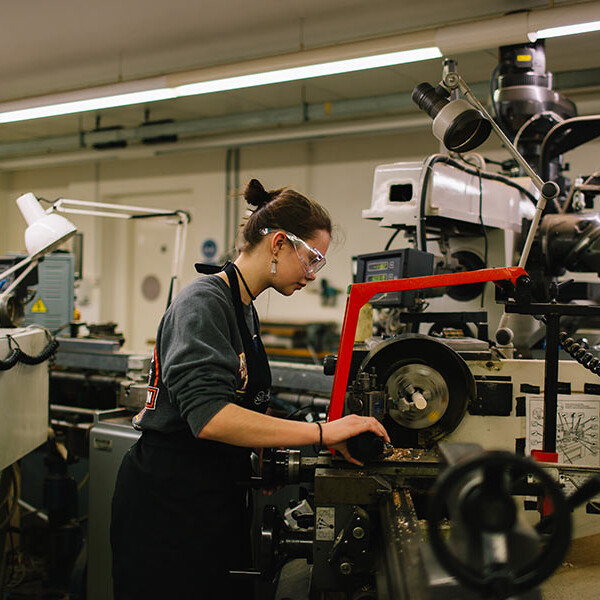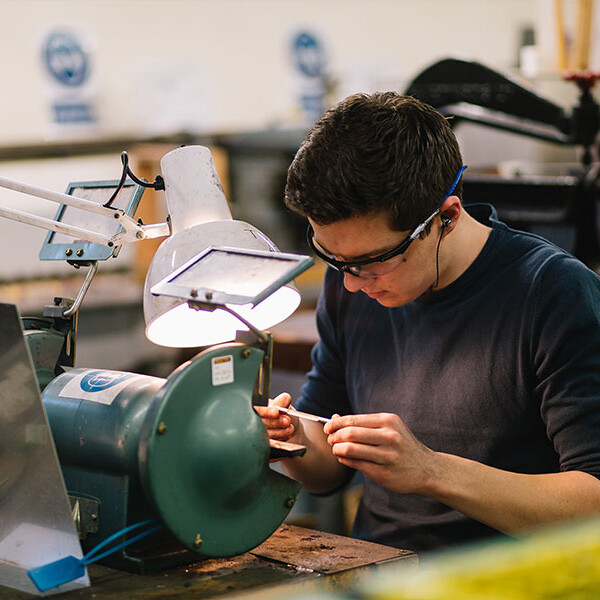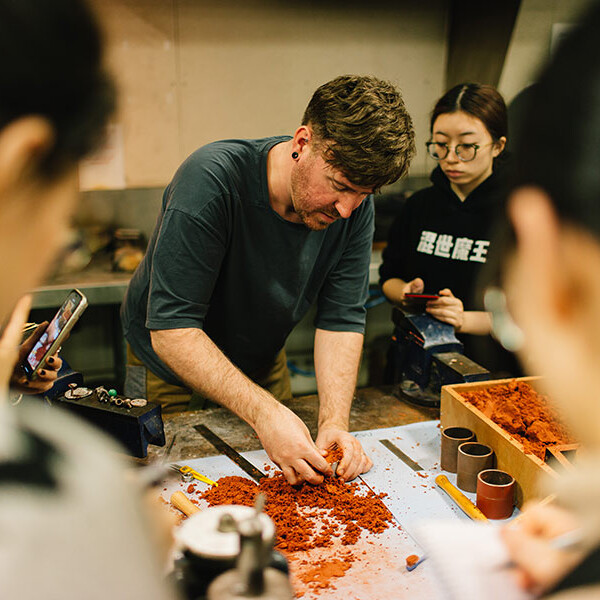Discover the evolution of designs and materials behind clocks and watches, alongside exploring the specialist skills required to design, make and repair these fascinating mechanisms yourself using fine hand and machining skills.
Our Horology degree, one of the only courses of its kind, will enable you to develop the practical and analytical skills to identify and resolve complex faults, and utilise our traditional and cutting edge facilities to explore a range of techniques.
You will benefit from the experience of practising professional horologists and colleagues in a shared learning environment, and have the opportunity to build a series of portfolios of clock/watch repairs and restorations as proof of your professional capabilities.
We will develop your digital design and communication skills using a range of industry standard software, using Computer Aided Design and Manufacture (CAD/CAM) and explore rapid prototyping to experience different methods and designs. The Course will embed transferrable skills such as initiative, adaptability and time and project management during your three years with us on the degree.
Our many connections with the major brands allow opportunities for working on Live Projects and exploring employment experience in a professional setting, alongside the chance to develop lifelong connections throughout the industry.
We have a strong employability record with graduates recently taking up places with employers such as Cartier, Rolex, Tag Heuer, and Xupes. Other Alumni work with Roger Smith, look after significant collections such as at the British Museum, work in major Auction Houses like Bonhams and Fellows, and have even and have restored the Great Clock of Westminster ( AKA Big Ben!) There may well be any number of similar opportunities ahead for you.
Our unique undergraduate Horology course will enable you to study clocks and watches, both mechanical and electronic, as well as exploring the art and science of time measurement.
Combining traditional craftsmanship with the latest technology, this course looks at the theory of horology, as well as providing you with valuable practical skills. You’ll examine the history of timekeeping, how clocks and watches work, and how they are designed, providing you with the restoration skills that are in demand within the industry.
The course uses industry-standard software, such as the Solidworks CAD package, to teach design and technical drawing skills, as well as both traditional and modern niche skills of repair, conservation and restoration. Our workshops give you access to timing and testing equipment, as well as machine tools, including laser welding machines, 3D printing and engine turning equipment.
Our reputation and staff connections mean that our professional links are outstanding. We have unique industry partnerships with luxury goods brands, such as Richemont (UK), (who own the brands Cartier, IWC, Panerai, Piaget, Jaeger-LeCoultre, Baume et Mercier and Montblanc) and with Louis Vuitton Moet Hennessy (LVMH – Tag Heuer, Zenith, Bulgari, Hublot), and have recently joined forces with established UK brand Christopher Ward. All these offer work placements, one-to-one mentoring and the chance to develop technical skills in a commercial environment.
You’ll study at our internationally-renowned School of Jewellery, in the heart of Birmingham’s famous working Jewellery Quarter. Our Vittoria Street building mixes the modern with the classical, and includes workshops, a specialist library, an atrium gallery and exhibition space.
Professional Placement Year
This course offers an optional professional placement year. This allows you to spend a whole year with an employer, following successful completion of your second year, and is a great way to find out more about your chosen career. Some students even return to the same employers after completing their studies.
If you choose to pursue a placement year, you will need to find a suitable placement to complement your chosen area of study. You will be able to draw on the University’s extensive network of local, regional, and national employers, and the support of our Careers teams. If you are able to secure a placement, you can request to be transferred to the placement version of the course.
Please note that fees are payable during your placement year, equivalent to 20% of the total full-time course fee for that year.
The Horology course at BCU taught me key skills which helped me secure my job at Rolex when I graduated. The volume of hands-on learning allowed me to improve my problem-solving skills and hand eye coordination. As well as this I was able to work on a variety of timekeepers like pocket watches and carriage clocks. While working on these it broadened my understanding of the similarities between all types of clocks and watches. Alongside the servicing modules there are modules for manufacturing different parts of clocks and watches. The skills learnt in these smaller, individual projects are then brought together in the final, major project. This is where I manufactured a clock which was of my own design. This was a very rewarding process and taught me a lot about project planning and working to tight deadlines.
Jacob Worthington, Rolex UK




















